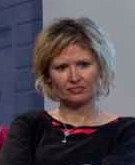Political Systems and Political Identities in Post-Communist Eurasia, 1992-2010
Alexander Chvorostov, Director, Center for Comparative Eurasia Studies and Surveys, Institute for Advanced Studies, Vienna and Visiting Professor, University of Vienna, Austria; Natalia Waechter, Senior Research Fellow, Center for Comparative Eurasia Studies and Surveys, Institute for Advanced Studies, Vienna, Austria and Visiting Professor, University of Innsbruck, Austria
Overview
"What is Europe today, and where are its borders?" asked Alexander Chvorostov, Director, Center for Comparative Eurasia Studies and Surveys, Institute for Advanced Studies, Vienna and Visiting Professor, University of Vienna, Austria, at a 13 April 2011 Kennan Institute event, "Political Systems and Political Identities in Post-Communist Eurasia, 1992-2010." In his presentation he shared the main findings of the international research project, "The Interplay of European, National and Regional Identities: Nations between the States along the New Eastern Borders of the European Union," (www.enri-east.net) a study funded by the European Commission. "We wanted to conduct an in-depth study of the ways in which the modern European identities and regional cultures are formed and inter-communicated in the Eastern part of the European continent," Chvorostov said. He stressed that the project's slogan, "Moving Peoples and Moving Borders," reflected the highly dynamic social and political landscape of the Eastern Europe. In his words, massive migration flows in recent years heavily influence cultural and social infrastructures in both "receiving" and "issuing" countries. 
The research project focused on the Baltic States, as well as Russia, Poland, Ukraine, Belarus, Hungary, and Slovakia. Empirical surveys included biographic interviews of people from certain ethnic minority group as well as expert interviews and content analysis. Research also focused on the issues of assimilation and languages. "In particular, we focused on twelve ethnic minority groups," Chvorostov explained, "and wanted to see how people from these groups felt about themselves in a particular country." One of the questions used in the study pertained to ethnic pride. Scholars defined 3 types of pride: general ethnic pride, general location pride (being proud of living in a certain country) and "Diaspora pride" (being proud of ethnic identity while living in a different country). The findings showed that "Diaspora pride" could be applied mostly to Poles living in Belarus, Belarusians living in Poland, and Hungarians living in Ukraine. A high level of "location pride" was shown by the Poles in Ukraine, Belarusians in Poland and Ukrainians in Poland.
 Natalia Waechter, Senior Research Fellow, Center for Comparative Eurasia Studies and Surveys, Institute for Advanced Studies, Vienna, Austria and Visiting Professor, University of Innsbruck, Austria, focused on young people from ethnic minorities living in the EU, as well as in bordering countries. Her research focused on young people from12 ethnic minority groups in 8 countries. "It turned out that being European is not the main identity of these young people," Waechter said. Talking about their identity, young people put on the first place gender, then occupation and age, and the reference to their ethnic group was in 4th place. At the same time, the image of the European Union for the young people who took part in the research is mainly positive. "In particular, a positive image of the EU was found in young Poles living in Ukraine, young Ukrainians in Poland, and young Hungarians in Slovakia," Waechter stated. Further, Waechter stressed that the reasons why these groups had especially positive attitudes toward the EU had to be studied more closely. Chvorostov and Waechter agreed with the audience that the European Union should closely examine the results of such findings for implementing various EU policies. The results of this project are to be shown to the European Commission in future conferences and seminars.
Natalia Waechter, Senior Research Fellow, Center for Comparative Eurasia Studies and Surveys, Institute for Advanced Studies, Vienna, Austria and Visiting Professor, University of Innsbruck, Austria, focused on young people from ethnic minorities living in the EU, as well as in bordering countries. Her research focused on young people from12 ethnic minority groups in 8 countries. "It turned out that being European is not the main identity of these young people," Waechter said. Talking about their identity, young people put on the first place gender, then occupation and age, and the reference to their ethnic group was in 4th place. At the same time, the image of the European Union for the young people who took part in the research is mainly positive. "In particular, a positive image of the EU was found in young Poles living in Ukraine, young Ukrainians in Poland, and young Hungarians in Slovakia," Waechter stated. Further, Waechter stressed that the reasons why these groups had especially positive attitudes toward the EU had to be studied more closely. Chvorostov and Waechter agreed with the audience that the European Union should closely examine the results of such findings for implementing various EU policies. The results of this project are to be shown to the European Commission in future conferences and seminars.
By Natalia Jensen
Blair Ruble, Director, Kennan Institute
Speakers
Alexander Chvorostov
Natalia Waechter
Hosted By

Kennan Institute
The Kennan Institute is the premier US center for advanced research on Russia and Eurasia and the oldest and largest regional program at the Woodrow Wilson International Center for Scholars. The Kennan Institute is committed to improving American understanding of Russia, Ukraine, Central Asia, the Caucasus, and the surrounding region though research and exchange. Read more
Thank you for your interest in this event. Please send any feedback or questions to our Events staff.










